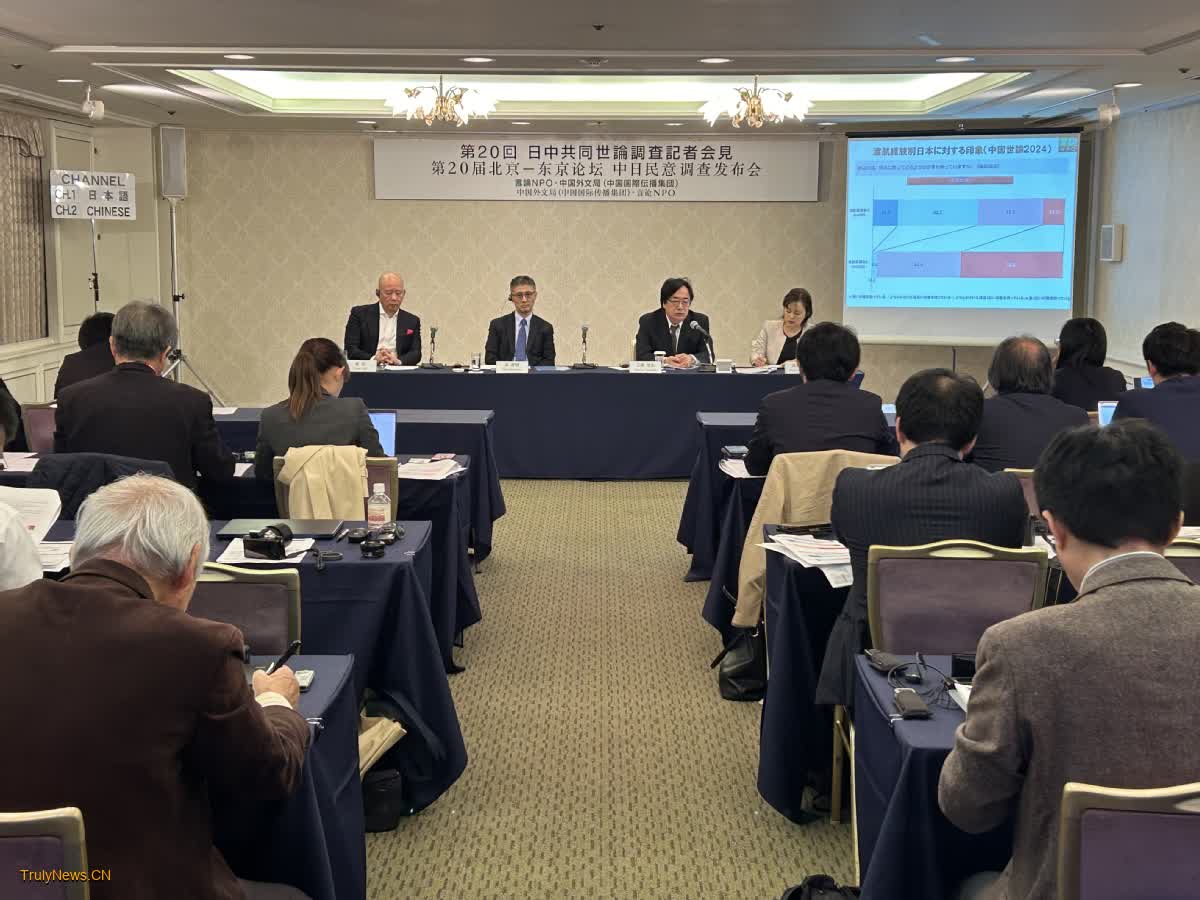
A recent survey reveals that a growing number of Japanese respondents are advocating for a more balanced and neutral foreign policy as the influence of China-US relations on China-Japan ties becomes increasingly evident.
According to the findings of a public opinion poll on China-Japan relations released in Tokyo on Monday, 37.8 percent of Japanese respondents believe that “China and Japan should minimize the impact of China-US relations and promote China-Japan cooperation”, marking an 8.8 percentage point increase from 2023.
The survey, published two days before the 20th Beijing-Tokyo Forum, also shows that 62.2 percent of Japanese respondents think “Japan should not take sides between China and the United States but should work to promote global cooperation”, a 4.2 percentage point increase from last year. This figure far exceeds the 18.7 percent who support “placing greater emphasis on the US”.
Economic and trade cooperation remains a cornerstone of China-Japan relations, as highlighted in the survey. Over half of respondents from both countries view the other as a vital economic and trade partner. Specifically, 51.8 percent of Chinese respondents and 58 percent of Japanese respondents value the other country as a major global economy and trade partner.
Additionally, 50.8 percent of Chinese respondents acknowledge the high economic and industrial interdependence between the two countries, while 65.3 percent of Japanese respondents regard China-Japan economic cooperation as essential to Japan’s future.
The survey also indicates a rise in the proportion of respondents who have visited the other country. While 82.1 percent of Chinese respondents and 88 percent of Japanese respondents have not yet visited the other nation, these percentages have declined compared to last year.
Among Japanese respondents who have visited China, 66.7 percent reported that their visits occurred over 11 years ago. Japanese respondents identified cultural, musical, and artistic exchanges (53.7 percent), student exchange programs (47.4 percent), and grassroots dialogues aimed at improving relations and addressing bilateral issues (39.3 percent) as key forms of people-to-people exchanges.
Regarding bilateral relations, Chinese respondents identified the Diaoyu Islands dispute and the release of nuclear-contaminated water as their primary concerns. Among them, 45.5 percent cited the Diaoyu Islands issue as the main reason for their negative impression of Japan. The discharge of nuclear-contaminated water from the Fukushima Daiichi Nuclear Power Plant was the most frequently mentioned obstacle to China-Japan relations, followed closely by the Diaoyu Islands and other territorial disputes.